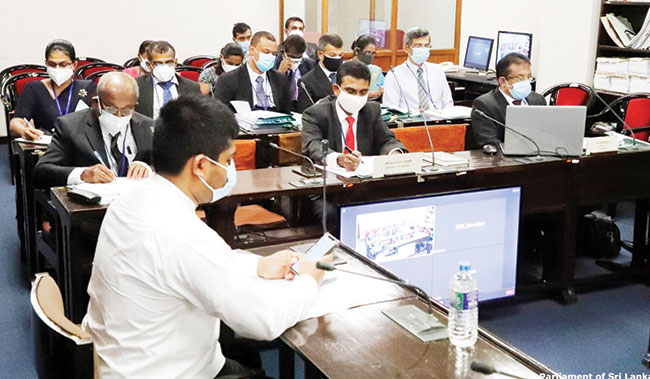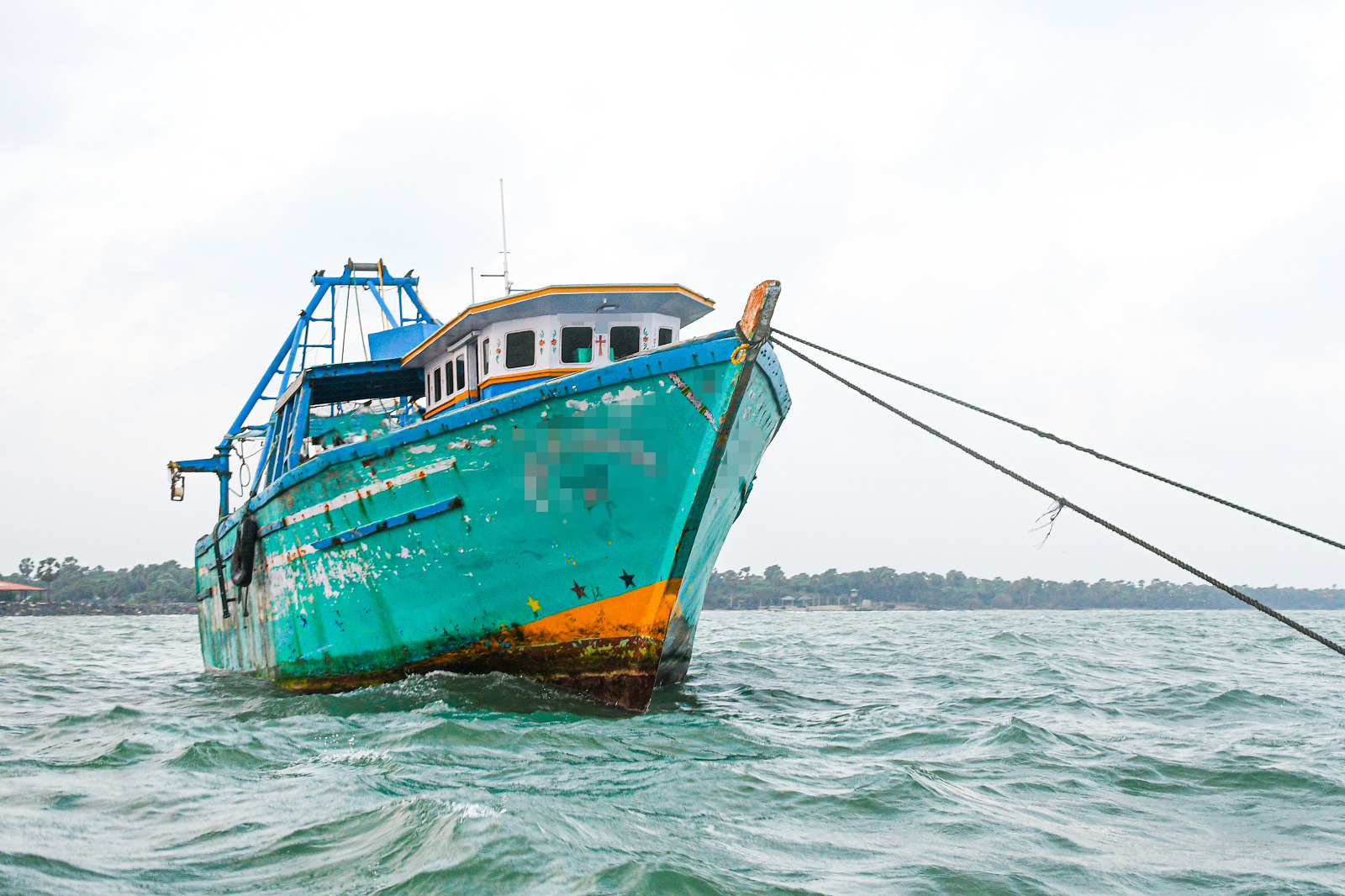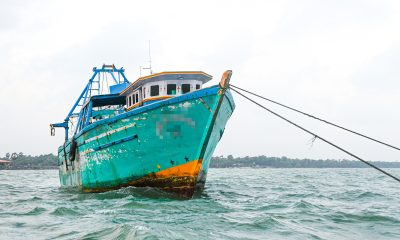News
COPE examines highway robberies at SLTB in 2018

Corruption: Spotlight on state-run bus service
It has been revealed at the Committee on Public Enterprises (COPE) that the Sri Lanka Transport Board (SLTB) spent Rs. 89 million in excess of the amount of funds allocated for the purchase of computers in 2018.
The SLTB had planned to purchase 139 computers and 74 laptops for the year 2018 at an estimated cost of Rs. 15,290,000, but acquired 800 computers and 47 laptops at a cost of Rs. 113,303,750. As a result, a staggering Rs. 89,977,500 was spent on the purchase of computers in 2018, in excess of the amount allocated through the General Accounts of the Transport Board, the COPE revealed.
This disclosure was made at the COPE meeting chaired by Prof. Charitha Herath, Member of Parliament. The Committee met on Wednesday (06) to examine the Auditor General’s Reports for the years 2017 and 2018 and its current performance in Parliament.
The COPE chairman expressed his displeasure at spending so much of money without following due process. Condemning the practice, he said that an institution which was supposed to serve the ordinary people, spending money in that manner could not be justified on any grounds. It was also disclosed that an agreement had been entered into with a private company to purchase equipment required to main tain the system required for cameras and GPS for 125 luxury buses at a cost of Rs. 33,628,840 . However, all except for a few of the devices were not working properly. Officials present at the Committee said that the employees of those buses had deliberately damaged the equipment and that an investigation was being carried out. The officials also promised to submit a report as soon as the investigation was completed. They said that if the warranty period had not expired, measures would be taken to get all equipment not in working condition repaired by the relevant company.
Attention was also drawn to the fact that the bank loan of Rs. 150,000,000 obtained on 24 December 2018 without the Minister of Finance approval. The COPE chairman pointed out that such a loan amount could not be obtained by a few officials. Therefore, COPE recommended that immediate action be taken in that regard.
The COPE also questioned the officials present regarding the SLTB’s failure to present the annual reports for the years 2017, 2018, 2019 and 2020 in Parliament. Officials pointed out that there were some concerns regarding printing during that period. However, the annual reports for 2017 and 2018 had already been submitted to the Ministry, officials said. Accordingly, the COPE ordered that all those reports be tabled in Parliament before 31 December.
According to the procurement plan for the year 2018, 1000 electronic bus ticket machines were to be purchased at a cost of Rs. 35 million with the approval of the Board of Directors. However, in the same year, Rs. 75,900,000 was spent on 2000 electronic bus ticket machines. Accordingly, 1000 electronic bus ticket machines were purchased without approval, and the COPE noted that those machines had not met the intended objectives. Therefore, it was recommended that a report be submitted to the COPE within a month in that regard.
Also discussed were the issues of several posts in the Board of Directors, the 5,921 buses in operation, the number of buses currently out of service and 2,742 buses which are 10 years old.
Minister Mahindananda Aluthgamage, State Minister D. V. Chanaka, Members of Parliament Rauff Hakeem, Jagath Pushpakumara, Madhura Withanage, and Premnath C. Dolawatte were present at the meeting. Member of Parliament (Dr.) Harsha de Silva and other officials joined the meeting via zoom technology. The Secretary to the Ministry of Transport and other officials of the Sri Lanka Transport Board were also in attendance at the meeting.
News
Navy seizes an Indian fishing trawler poaching in Sri Lankan waters north of Talaimannar

During an operation conducted in the wee hours of Tuesday (23 Dec 25), the Sri Lanka Navy seized an Indian fishing trawler and apprehended 12 Indian fishermen, while they were poaching in Sri Lankan waters north of Talaimannar.
Recognizing the detrimental effects of poaching on marine resources and the livelihoods of local fishing communities, the Sri Lanka Navy continues to conduct regular operations as
proactive measures to deter such activities. These efforts underscore the collective robust approach steadfast commitment to safeguarding the nation’s marine ecosystems while ensuring the economic security and wellbeing of its citizens.
The fishing trawler along with the fishermen held in this operation was handed over to the Fisheries Inspector of Mannar for onward legal proceedings.


News
India’s External Affairs Minister meets Sri Lanka PM

India’s External Affairs Minister, Dr. Subramaniam Jaishankar, met with the Prime Minister of Sri Lanka, Dr. Harini Amarasuriya, on 23 December at Temple Trees, during his visit to Sri Lanka as the Special Envoy of Indian Prime Minister Shri Narendra Modi.
The meeting took place as part of the official visit aimed at holding discussions with Sri Lanka’s top leadership, at a time when the nation commenced reconstruction efforts following the devastation caused by Cyclone Ditwah.
During the discussions, the Minister of External Affairs of India reaffirmed readiness to extend support for Sri Lanka, including assistance in rebuilding railways, bridges, and strengthening of the agricultural sector in the country. He also highlighted the importance of having effective systems in place to respond to disaster situations, supported by strong legislative, administrative, and institutional frameworks. Both sides reviewed ongoing relief efforts and explored avenues to further strengthen bilateral cooperation in disaster response and recovery.
The Prime Minister commended the Government of India for the continued support, noting that the recovery process following the devastation caused by Cyclone Ditwah include beyond immediate relief efforts to long-term measures such as resettlement, and reconstruction of habilitation and infrastructure.
The Prime Minister further stated that steps have been taken to reopen schools as part of the process of restoring normalcy, with close monitoring in place. The Prime Minister emphasized the need to ensure stability, reduce vulnerability, and strengthen protection mechanisms highlighting the solidarity of the people, their strong spirit of volunteerism, and collective action demonstrated during the emergency situation.
The event was attended by the High Commissioner of India Santosh Jha, Additional Secretary (IOR), MEA Puneet Agrawal, Joint Secretary (EAMO), MEA Sandeep Kumar Bayyapu, Deputy High Commissioner Dr. Satyanjal Pandey, and representing Sri Lankan delegation, Secretary to the Prime Minister Pradeep Saputhanthri, Additional Secretary to the Prime minister Ms.Sagarika Bogahawatta, Director General (South Asia), Ministry of Foreign Affairs Samantha Pathirana, Deputy Director, South Asia Division, Ministry of Foreign Affairs Ms.Diana Perera.
[Prime minister’s media division]
News
Sri Lanka’s coastline faces unfolding catastrophe: Expert

Sri Lanka is standing on the edge of a coastal catastrophe, with the nation’s lifeline rapidly eroding under the combined assault of climate change, reckless development and weak compliance, Director General of the Department of Coast Conservation and Coastal Resource Management (DCC&CRM) Dr. Terney Pradeep Kumara has warned.
“This is no longer an environmental warning we can afford to ignore. The crisis is already unfolding before our eyes,” Dr. Kumara told The Island, cautioning that the degradation of Sri Lanka’s 1,620-kilometre coastline has reached a point where delayed action could trigger irreversible damage to ecosystems, livelihoods and national security.
He said accelerating coastal erosion, rising sea levels, saltwater intrusion and the collapse of natural barriers, such as coral reefs and mangroves, are placing entire coastal communities at risk. “When mangroves disappear and reefs are destroyed, villages lose their first line of defence. What follows are floods, loss of homes, declining fisheries and forced displacement,” he said.
Dr. Kumara stressed that the coastline is not merely a development frontier but the backbone of Sri Lanka’s economy and cultural identity. “More than half of our tourism assets, fisheries and key infrastructure are concentrated along the coast.
If the coast fails, the economy will feel the shock immediately,” he warned.
Condemning unregulated construction, illegal sand mining and environmentally blind infrastructure projects, he said short-term economic interests are pushing the coastline towards collapse. “We cannot keep fixing one eroding beach while creating three new erosion sites elsewhere. That is not management—it is destruction,” he said, calling for science-driven, ecosystem-based solutions instead of politically convenient quick fixes.
The Director General said the Department is intensifying enforcement and shifting towards integrated coastal zone management, but warned that laws alone will not save the coast. “This is a shared responsibility. Policymakers, developers, local authorities and the public must understand that every illegal structure, every destroyed mangrove, weakens the island’s natural shield,” he added.
With climate change intensifying storms and sea surges, Dr. Kumara warned that Sri Lanka’s vulnerability will only worsen without urgent, coordinated national action. “The sea has shaped this nation’s history and protected it for centuries. If we fail to protect the coast today, we will be remembered as the generation that allowed the island itself to be slowly eaten away,” he went on to say.
By Ifham Nizam
-

 News2 days ago
News2 days agoMembers of Lankan Community in Washington D.C. donates to ‘Rebuilding Sri Lanka’ Flood Relief Fund
-

 News7 days ago
News7 days agoPope fires broadside: ‘The Holy See won’t be a silent bystander to the grave disparities, injustices, and fundamental human rights violations’
-

 News7 days ago
News7 days agoPakistan hands over 200 tonnes of humanitarian aid to Lanka
-

 Business6 days ago
Business6 days agoUnlocking Sri Lanka’s hidden wealth: A $2 billion mineral opportunity awaits
-

 News6 days ago
News6 days agoArmy engineers set up new Nayaru emergency bridge
-

 News7 days ago
News7 days agoOfficials of NMRA, SPC, and Health Minister under pressure to resign as drug safety concerns mount
-

 News7 days ago
News7 days agoExpert: Lanka destroying its own food security by depending on imported seeds, chemical-intensive agriculture
-

 Editorial7 days ago
Editorial7 days agoFlawed drug regulation endangers lives



















